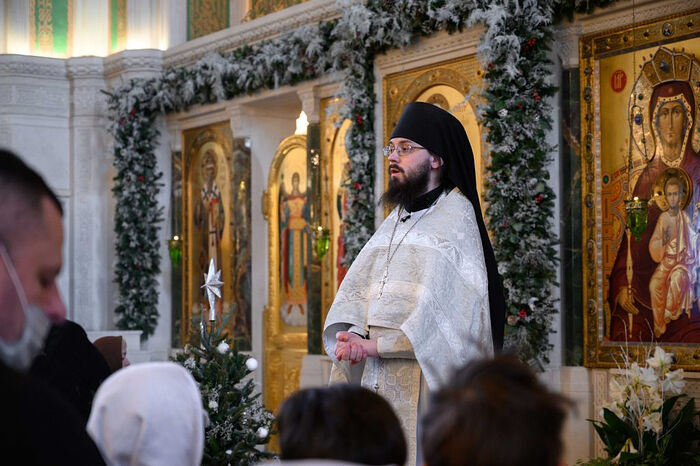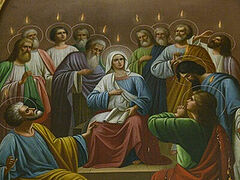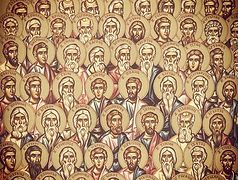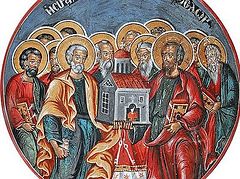In the name of the Father, and of the Son, and of the Holy Spirit.
Today we commemorate the Seventy Apostles. Among these saints there are people with very different paths in life: some converted to Christ at a young age; others—after living a significant part of their lives; others became disciples of the Lord Jesus Christ during His lifetime; others after His death and Resurrection through the preaching of other apostles. But they all have one thing in common—they were all preachers of Christ. All of them dedicated their lives to proclaiming the Truth of the Gospel, to proclaiming to people that God came to earth and that each one of us through Christ can potentially attain salvation and inherit eternal life.
When the Church glorifies one or another saint, it does this primarily as an example to all of us. So every time we read the Life of one or another saint our main task is to understand what the Church wants to say by this Life—what example, what model the Church wants to give us. Of course, the Lives of the Holy Apostles are a call to all of us to be apostles too and preach Christ.
But here the most important question arises: how to preach Christ? Should we behave in the same way as the Holy Apostles did?
It often happens that when someone in a family becomes a member of the Church, this person immediately has a desire to become an apostle for the rest of the family. And it often happens that the other family members don’t know where to get away from this “apostolate”, because the person keeps reminding his non-religious and non-believing relatives at every opportunity what “impious”, “incorrect” lives they live, that they do not comply with the Church rules and canons, and teaching them how to “live properly”. And there is even a joke in our society: “When a family member becomes a Christian, all the other family members become martyrs.” Unfortunately, this is often the case.
 Hieromonk Athanasius (Deryugin)
Hieromonk Athanasius (Deryugin)
But needless to say, that this is not the apostolate that the Lord calls us to. And sometimes a false apostolate has just the opposite effects. A person who preaches like that cultivates pride in himself, and people who listen to him usually do not become Christians, but, on the contrary, receive a very solid immunization for life and an absolute unwillingness to ever become Christians or have anything to do with Christianity.
But how should we preach? In one of his Epistles, the Apostle Peter addresses the wives whose husbands are not Christians and tells them, “Adorn yourselves with your virtuous Christian lives, and then your husbands, having seen this, through your lives, without any words, will be converted to Christianity” (cf. 1 Pet. 3:1–4). And this is the most important advice on how we should preach. In the Gospel the Lord said in His Sermon on the Mount that the one who will fulfil His commandments and teach them to people will be great (cf. Mt. 5:19). The Lord puts the fulfilment of the commandments first. We all know what happens when a person teaches something that he does not do himself—it causes nothing but rejection. And if a person fulfils the commandments of God himself, then there is no need to say anything—by his example he will convert to Christianity many more people than by thousands of words.
Recently I read the Life of the Holy New Hieromartyr Vladimir Ambartsumov (1892–1937; commemorated November 5). In his youth he was a Baptist and a member of a Christian Students’ Group. Besides Baptists, there were also Orthodox members in the group. They did not talk about the differences between the faiths and just tried to be Christians together. But the good examples that Vladimir saw in Orthodoxy and which he probably did not see in Baptism impressed him so much that he became an Orthodox Christian, then a priest, and then a holy new martyr. As you see, no one preached Orthodoxy to him in a formal sense, but the lives of true Orthodox Christians brought much more benefit than any words. And it is very important for us to remember this.
And, looking at the examples of the Seventy Apostles, we should be apostles too. But above all, according to the commandment of Christ, we must do His will, and then we will teach much more by this than by any words; which means that, God willing, we will attain salvation and share a little in the feat of the Apostles, so that through our lives and through our virtues others would see the radiance of Christ in our lives, and God willing, would themselves want to strive for the Heavenly Kingdom. Amen.




